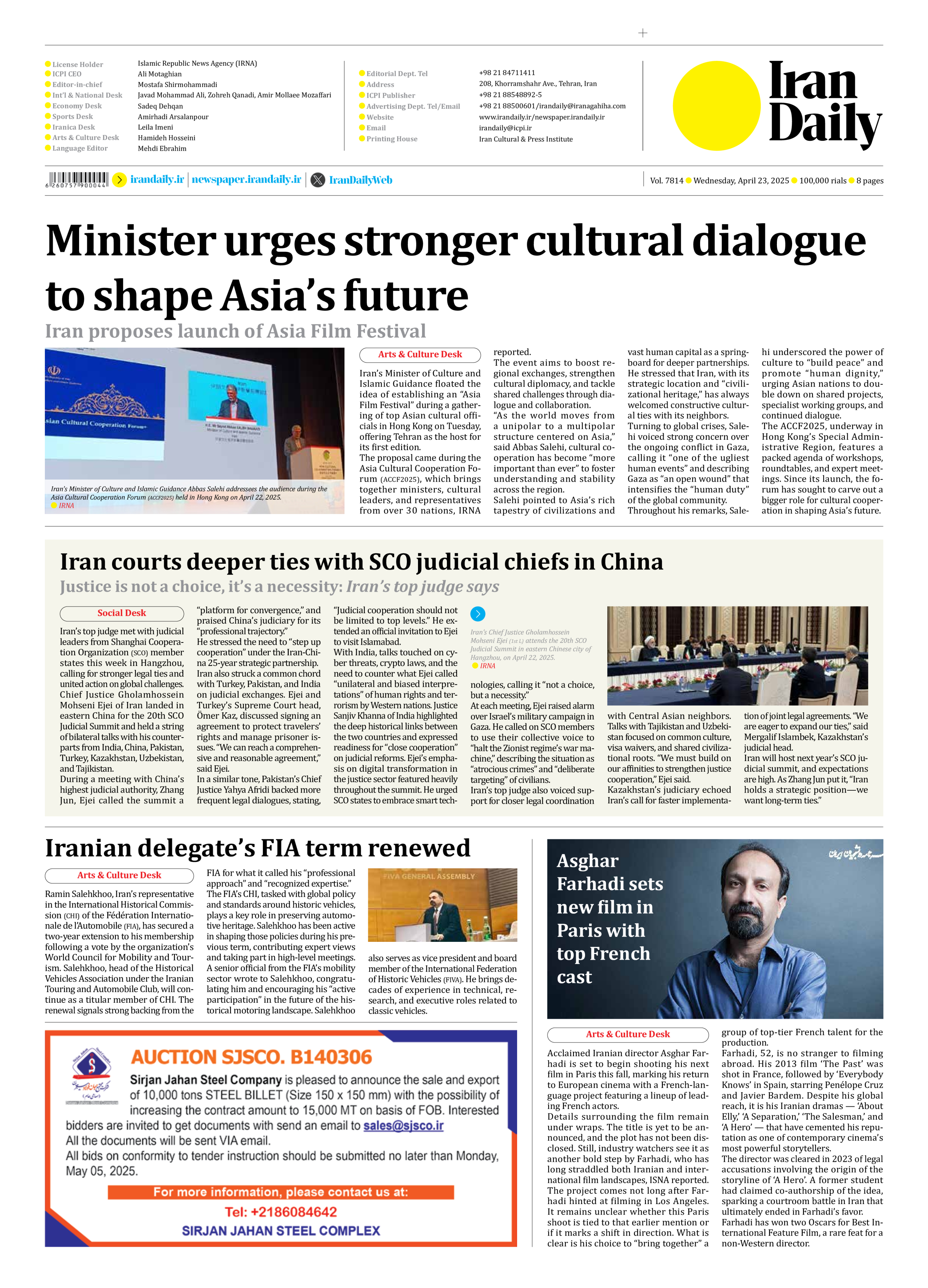
Copy in clipboard...
Iran courts deeper ties with SCO judicial chiefs in China
Justice is not a choice, it’s a necessity: Iran’s top judge says
Iran’s top judge met with judicial leaders from Shanghai Cooperation Organization (SCO) member states this week in Hangzhou, calling for stronger legal ties and united action on global challenges.
Chief Justice Gholamhossein Mohseni Ejei of Iran landed in eastern China for the 20th SCO Judicial Summit and held a string of bilateral talks with his counterparts from India, China, Pakistan, Turkey, Kazakhstan, Uzbekistan, and Tajikistan.
During a meeting with China’s highest judicial authority, Zhang Jun, Ejei called the summit a “platform for convergence,” and praised China’s judiciary for its “professional trajectory.”
He stressed the need to “step up cooperation” under the Iran-China 25-year strategic partnership.
Iran also struck a common chord with Turkey, Pakistan, and India on judicial exchanges. Ejei and Turkey’s Supreme Court head, Ömer Kaz, discussed signing an agreement to protect travelers’ rights and manage prisoner issues. “We can reach a comprehensive and reasonable agreement,” said Ejei.
In a similar tone, Pakistan’s Chief Justice Yahya Afridi backed more frequent legal dialogues, stating, “Judicial cooperation should not be limited to top levels.” He extended an official invitation to Ejei to visit Islamabad.
With India, talks touched on cyber threats, crypto laws, and the need to counter what Ejei called “unilateral and biased interpretations” of human rights and terrorism by Western nations. Justice Sanjiv Khanna of India highlighted the deep historical links between the two countries and expressed readiness for “close cooperation” on judicial reforms. Ejei’s emphasis on digital transformation in the justice sector featured heavily throughout the summit. He urged SCO states to embrace smart technologies, calling it “not a choice, but a necessity.”
At each meeting, Ejei raised alarm over Israel’s military campaign in Gaza. He called on SCO members to use their collective voice to “halt the Zionist regime’s war machine,” describing the situation as “atrocious crimes” and “deliberate targeting” of civilians.
Iran’s top judge also voiced support for closer legal coordination with Central Asian neighbors. Talks with Tajikistan and Uzbekistan focused on common culture, visa waivers, and shared civilizational roots. “We must build on our affinities to strengthen justice cooperation,” Ejei said.
Kazakhstan’s judiciary echoed Iran’s call for faster implementation of joint legal agreements. “We are eager to expand our ties,” said Mergalif Islambek, Kazakhstan’s judicial head.
Iran will host next year’s SCO judicial summit, and expectations are high. As Zhang Jun put it, “Iran holds a strategic position—we want long-term ties.”







